With "G.I. Joe: The Rise of Cobra" set to invade movie theaters this weekend, a few weeks ago I got to speak with screenwriter Stuart Beattie about his involvement in the movie. He talked to me about his love of the property, how fast he had to write the script, all the online buzz surrounding the film, the casting, how involved was Hasbro, and he explains the mantra he likes to follow when writing scripts. If you've been looking forward to "G.I. Joe" or are just curious how a script sometimes comes together, you'll really like the interview. Take a look after the jump:
And if you missed what Stuart said about "Tarzan: Lord Of The Jungle", "The 89th War", "Bra Boys", Tom Clancy's "Without Remorse", "Tomorrow, When the War Began", and "Spyhunter", click here.
Stuart Beattie: How are you doing?
Pretty good. How are you doing?
BEATTIE: I'm good, mate. I'm good.
What time of day is it there?
BEATTIE: 9:00 in the morning. It's a beautiful day down here in sunny Sydney.
One day maybe I'll be able to get down there. I'm hoping.
BEATTIE: Yeah, you should come, man. It's beautiful.
Oh, I've heard. Have you been doing a lot of press or are you jumping in with me or what's the story?
BEATTIE: Yeah, I'm sort of doing a lot of photos right now. Just like 3 or 4 just in the lead up to the movie coming out. I've done some like Script Magazine and Creative Screenwriting but that was back in May or June.
Am I one of the few people that have seen the movie that you were talking to?
BEATTIE: I think you're the only one. They haven't done official screenings anyway.
Yeah, the version I saw wasn't completed but it was just about done. I think that they said maybe some of the....
BEATTIE: Oh yeah?
Yeah, I just saw it on Tuesday night.
BEATTIE: Oh cool. Okay.
I went a research screening.
BEATTIE: Okay.
So I'm sure it's a little unusual for you because I don't even know if you've seen it.
BEATTIE: Oh, I've seen it many times.
When was the last time you saw it?
BEATTIE: The last time I saw it...a month ago or so. Maybe 2 months ago. I've been down here for like a month so it would have to be at least 2 months since I last saw it.
Well, I thought it was...I really did think it was the cartoon come to life. And so I guess my question is...
BEATTIE: Cool.
...I really did and I think that what's been your take...I mean just to sort of start on this, for some reason with this project, people online have had their claws out, like attacking it, for pretty much a long time now. What's been your take on it about this reaction and, you know, the other night a lot of people saw the movie and a lot of reviews made it online and it seems to be that the tide is turning?
BEATTIE: Yeah, well I've always believed honestly, honestly believed that the movie's great. The first time I saw it was probably back almost a year ago now, you know. And you can just tell that it was just working and the more and the more effects that came over the course of the last year and filled in all the missing pieces it just kept getting better and better and so I've kind of always maintained...I mean I've always liked it so I kind have always known that. I just always hoped everyone else kind of liked it too and it seems like now that people actually have gone to see it they've kind of seen, I guess, what I've been seeing for the last year. But as far as the negative reaction, I'm not sure why. People, I think, are always wary of things they don't know about because literally no one had seen anything before on this. It's not a sequel, you know. It's a beloved property. Certainly people that maybe they see us get the better of them, I don't know. But I think it's always wrong to kind of go, "Oh, that's going to be bad." You know? Just as far as you get to know because you never know. You never know how it's going to turn out. It could be bad, it could be good, you know? So I just think you've got to have that open mind on everything otherwise you just kind of talk in hot air, I think.
So did you, as I said my quick one sentence is I thought it was the cartoon come to like, so did you watch a lot of episodes of the cartoon? How familiar were you with the "Joe" universe?
BEATTIE: I was very familiar with it. I was approached in 2000 to do the "GI Joe" movie when it was a whole different set of producers and everything. So that's when I got a hold of the bible and all the comics and all that stuff. I'd seen a lot of the cartoons but the main stuff that I really got into were the comics and especially the Devil D series, which I thought were amazing. So I was already very, very familiar with it. I didn't grow up with it because being Australian, we didn't have GI Joe here, but I knew of it. And then once I got all that information, like 9 years ago, I just held onto all that stuff because I loved it and I loved reading it and I just loved the world of it, so that when I got that call, God I guess it was almost 2 years ago now, to do the movie it was just very easy to kind of just slip in and tell the story basically. Find a story and tell it.
When you're partnered up with a company like Hasbro, they obviously are making this movie to sell toys and, you know, promote the brand. So when you're writing it, did they give you any sort of notes regarding like we want to have certain characters, we want to have certain vehicles, or did they just say you write it and then we'll adapt?
BEATTIE: Yeah, I mean there really wasn't time to talk to Hasbro because I mean I was brought on like mid-September, so that was 6 weeks before the strike, so there never really time to get in with that. I had to kind of come up with a whole new thing from scratch because they didn't want to do any of the previous scripts, so it was really just a matter of just...they kind of let me loose. I'm not sure if they knew how well versed I was in the GI Joe mythology, but I just was. And so I kind of had my own parameters about it like I knew I wanted certain characters in. I knew there had to be certain vehicles and there had to be a certain level of technology and it had to be....to make it a "GI Joe" movie, I didn't want to make a movie that could exist in the world of James Bond or Jason Bourne or any of these other very action franchises. I wanted it to be a uniquely "GI Joe" story with unique "GI Joe" characters and I just happened to know all that stuff and love all that stuff. So I kind of set my own parameters and I guess if I'd gone outside them I'd probably would have got a tap on the shoulder at some point and said "No you can't do that", or "Hey how about more of this?" but I honestly never got that. From the start it was just, "Ho, go, go. Give us a script. We start shooting in..."well we started shooting, I think, February 13th?
I remember it all coming together. I actually went to the set and Lorenzo told me the chaos of getting that thing going.
BEATTIE: I love Lorenzo. He's the one who called me and he said "Do you want to do it?" I said, "I'm going on strike, man." It's like "So that's six weeks away." It was pretty chaotic, but on the plus side there was less time to kind of mess around. What can you do in 6 weeks? I was like, okay let me just get a really good structure because I know if I get a good structure down, then everything else we can polish later. But the structure you just can't change once that's set because that's like the burn-the burn to the body. So, you know, I can actually write for 3 weeks which really freaked everybody out because I was like I can sit here and write. I could write scenes and that would be a great bunch of scenes but they wouldn't make sense and there wouldn't be any good together. I said let's start, figure out the structure, get a really good working solid structure and we'll worry about the scenes later. So that's kind of what I started writing literally three weeks before I went on strike and I wrote around the clock and everything but still it was the most important thing to me was the structure. It always is, I think, in any screenplay. So with just a few minor heart attacks, but I still think it was the right way to go.
No, I agree with you. The thing that I enjoyed about the film is that the plot is very...I think kids are going to like it and the plot is very easy to follow. It's the good guys vs. the bad guys and each side is just trying to accomplish their goal, you know?
BEATTIE: Yeah, exactly. You've got a MacGuffin in a suitcase and it's basically who has it? The bad guys get it and you know try to cause mass devastation with it. I'm a big fan, you know, the mantra "Simple Stories, Complex Characters". And when you've got 15 characters the simpler the story for me the better. It doesn't mean it has to be predictable or anything. I mean I hope that there's still some good twists in there but once you get into plots where you have to have dialogue explaining what's going on, then that's minutes on-screen but could be used to explore some deeper character trait. And the characters are always more interesting, I think than the plots.
Yeah, one of the things and obviously because most of the people who are going to read this interview are not going to have seen the film, so I don't want to talk very specifically but I do want to talk about the ending a little bit and as gray as we can go, which is I really liked the ending a lot and the way certain people are introduced and certain things change. Was there ever any thought about pulling that stuff a little like...was it always a plan to put that at the very end?
BEATTIE: Yeah. Yeah. Always at the very end. The thing was to tell the story and then kind of set us up for that ending. It's hard. I'm trying to talk about it.
Yeah, you know what I mean.
BEATTIE: Yes. I mean the structure of the film was the structure of the 1st draft and pretty much most of the scenes, you know, were all the scenes in that 1st draft that I handed in October 31st. The main stuff, I mean maybe really like half a dozen maybe new scenes and that was stuff I did on-set just kind of once we realized we could have more of Dennis Quaid we'd put more Dennis Quaid in because Dennis Quaid is so great, you know, stuff like that. But pretty much what I wrote in those three weeks was what we ended up shooting. I polished all the scenes a lot, tried to make them better in their own way, but the structure, the story all that kind of stuff was all that first 3 weeks just sitting around trying to figure it out and trying to keep everyone at bay.
And one last question for you on "GI Joe". The movie's about an hour and 40-something minutes. Do you think there's a lot of stuff that was cut or is that pretty much what you wrote?
BEATTIE: No, that's pretty much what I wrote. Yeah, the first draft, I think, was 100 pages. I tend to try and stick to 100 pages or under because I don't believe....I mean most audiences that I've seen, they get restless after 2 hours especially if it's some action movie, you know? So I always try and aim for like 100 pages because that ends up being around 145-150, you know by the time a film is done and that means when they're in the editing room kind of going "Wow, we really loved this scene but we just don't have time for it" , you know that's the worst. When you're cutting the film and you've got to cut stuff to make it fit. That's the worst. You've got to lose your babies and all that, or you have to lose something that's kind of key to the plot. And then the whole movie stops making sense. So it's to avoid those dangers. To avoid those pitfalls of having to cut later for the length of time. If you can write a script no more than 100 pages, you're pretty sure you're never going to have that problem. So it's just a way of writing that I've kind of adopted over the years to kind of make sure that we're never in that awful position because that's just the worst.
I'm always curious about deleted scenes on DVD's and stuff.
BEATTIE: Oh deleted scenes, yeah. I think there's very few, very few. In fact I don't know of any we've deleted for the film. I'm just trying to think. No, I think everything's in there. Everything's in there. All those flashbacks and everything. If anything was going to go it's probably going to be that stuff. Yeah, with all that back-story on all those characters so if I'd written a 120 page script, you know, that stuff probably would have ended up going. It's about being super, super disciplined about structure and story and how you tell a story in 100 pages. I actually find it harder to do. It's easier in a way to write a 120 page script, I find. There's that famous quote about, "Sorry I've written you such a long letter but I didn't have time to write a short one," Have you heard that?
I think I've heard that actually.
BEATTIE: It's actually, for me, harder anyway to write a shorter script because you just don't have the luxury to let the plot go. You've got to be like really anal about it and really tell your story and tell it distinctly and get to the point in scenes and keep the story flowing and keep it moving.
It's like me writing articles on the site. You've got to sometimes be concise.
BEATTIE: Yeah, exactly. So your editor doesn't come in and go "Well that's too long. Cut off the... what?" Now what do I do, you know? And when you've got a big budget movie like "GI Joe" and you've got a cut, you end up being millions of dollars down the tube, you know? So it's best to kind of do all that kind of cutting in the script stage and then film exactly what you need and put it all together and you've got the movie.
No, totally.
BEATTIE: Much better way to do it I think.
I think you might be right. Well, listen I want to thank you so much for giving me literally so much of your time, and congrats on...
BEATTIE: Oh my pleasure.


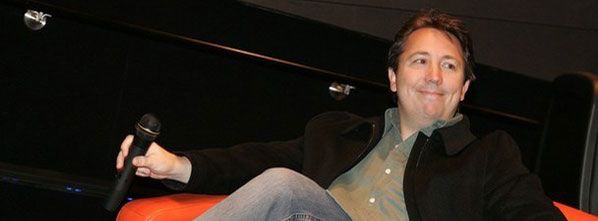
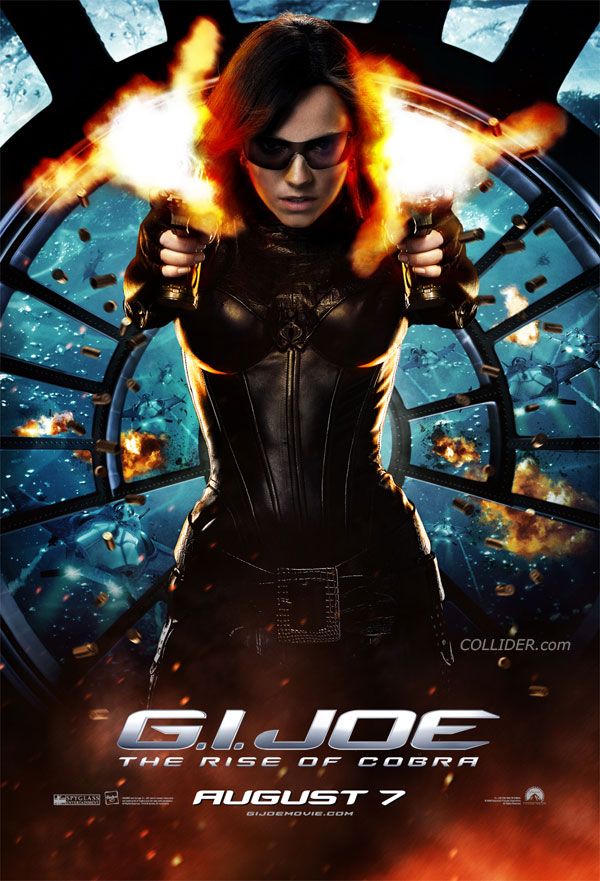
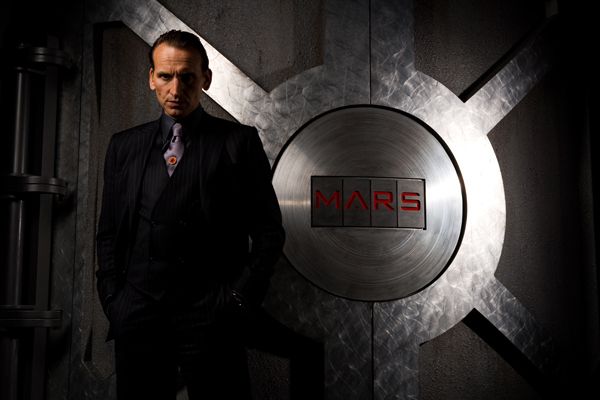
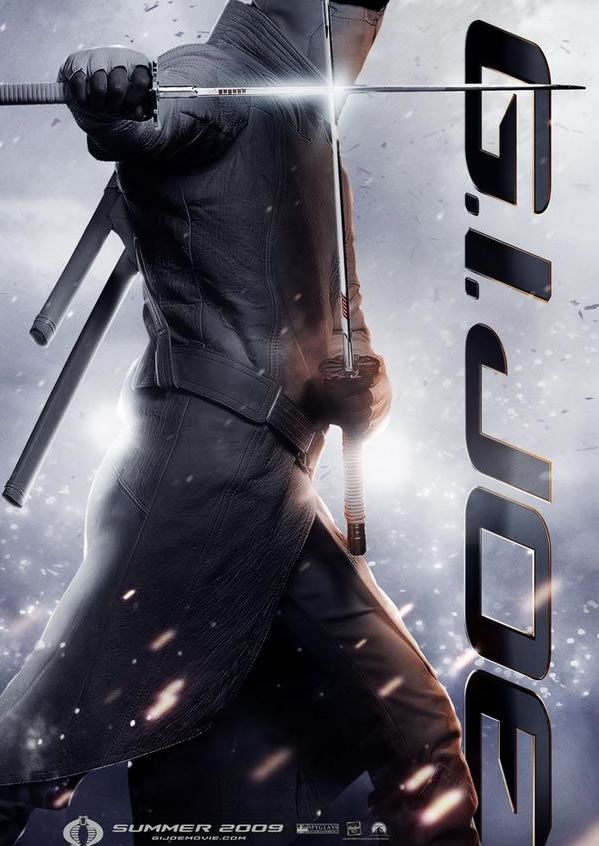
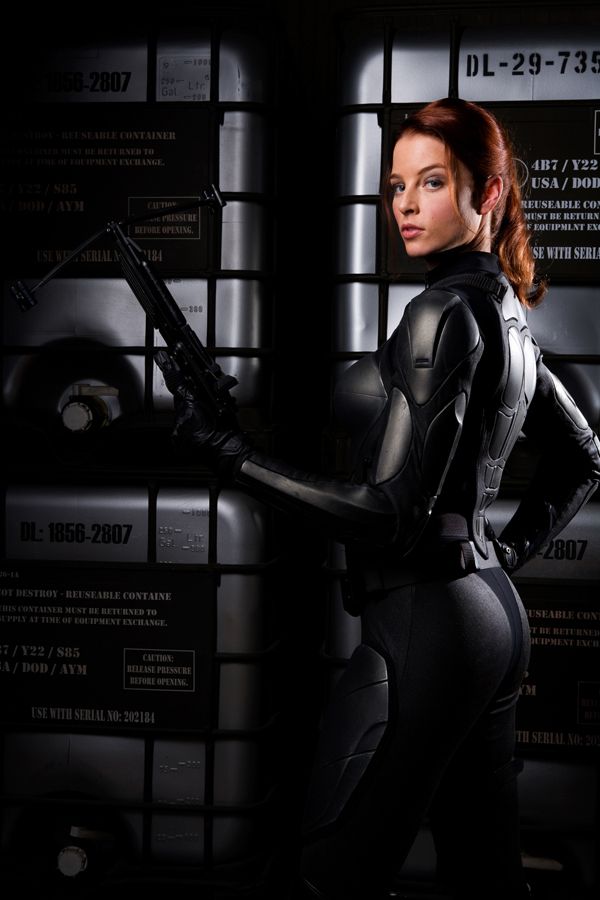
.jpg)
.jpg)
.jpg)